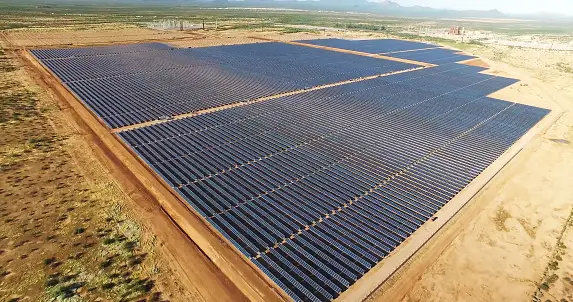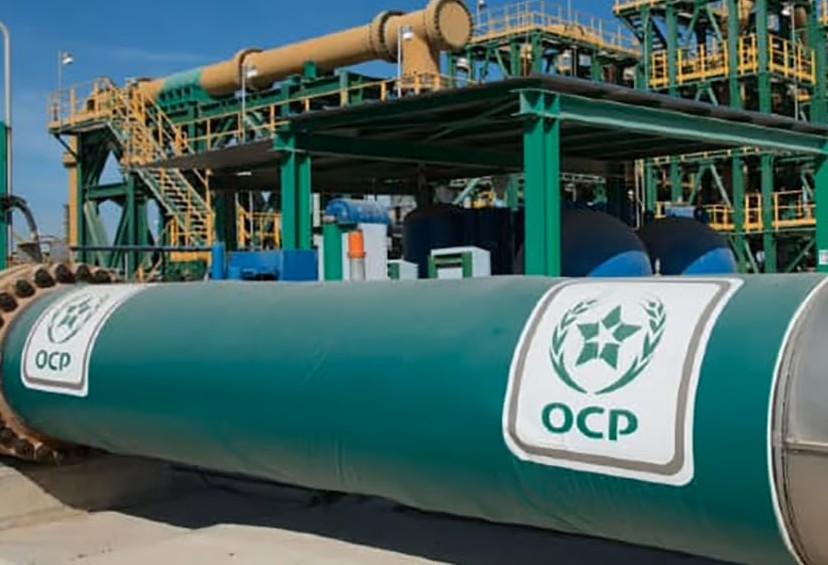Casablanca – Morocco is taking a major step toward diversifying its industrial base and strengthening its role in global supply chains with a $280 million project to extract and process fluorine from phosphate rock. The initiative, led by INNOVX, a subsidiary of Mohammed VI Polytechnic University (UM6P) under the state-owned OCP Group, will create a new high-tech chemical hub at Jorf Lasfar, home to the world’s largest fertilizer production platform.
The project will be carried out by Fluoralpha, INNOVX’s fluorine-focused subsidiary established in 2023. Fluoralpha aims to transform hexafluorosilicic acid (FSA)—a byproduct of Morocco’s phosphate industry—into a range of high-value fluorine compounds used in critical global industries such as electric vehicle batteries, aluminum production, semiconductors, and advanced chemicals.
Strategic financing and industrial vision
To launch this large-scale project, INNOVX secured over $103 million in financing from Bank of Africa (BOA), marking a key milestone in Morocco’s efforts to build innovative, sustainable industries. The BOA loan represents a significant portion of the project’s total cost and demonstrates the financial sector’s confidence in Morocco’s industrial strategy. According to executives, the financing also opens the door for additional funding to support other green and high-tech ventures.
INNOVX described the agreement as “an important milestone in realizing the company’s ambitions,” noting that it will help accelerate projects linked to the energy transition and industrial sovereignty. The financing is presented as a key step in supporting innovative and sustainable initiatives that strengthen Morocco’s industrial development and position the country as a regional hub.
Two key production units
The new Jorf Lasfar complex will house two major production units:
- A plant for anhydrous hydrofluoric acid (AHF) with an annual capacity of 20,000 tons.
- A plant for aluminum fluoride (AlF₃) with an annual capacity of 28,000 tons.
Both materials are vital to several rapidly expanding global value chains. AHF is a critical component in fine chemicals and semiconductor manufacturing and is indispensable for producing LiPF₆, a key salt used in lithium-ion batteries. AlF₃ plays a crucial role in the electrolysis of primary aluminum, improving the energy efficiency and competitiveness of the global aluminum industry.
Fluoralpha is also developing a third product line—synthetic calcium fluoride (CaF₂)—to help secure and diversify global fluorine supplies, reducing reliance on naturally limited reserves. By transforming a byproduct of Morocco’s vast phosphate reserves into these strategic materials, the project will help reduce dependence on imported compounds and strengthen Morocco’s industrial sovereignty.
Supporting the global energy transition
Fluorine-based products are in high demand as industries shift toward low-carbon technologies. Lithium-ion batteries are essential for electric vehicles and energy storage systems, while semiconductors are critical to electronics and advanced computing. By producing these materials domestically, Morocco aims to position itself as a reliable supplier for markets in Europe, Africa, and beyond.
Fluoralpha highlighted the strategic importance of the initiative, noting that the company is “transforming a byproduct of Moroccan phosphate rock into strategic materials essential for the industries of the future.” The company emphasized its clear goal of making Morocco a global hub for fluorine products supporting both the energy and technology transitions.
Integration with OCP’s broader strategy
The project reflects the wider strategy of OCP Group, which manages the world’s largest phosphate reserves and has been expanding into downstream industries to maximize the value of Morocco’s natural resources. OCP is already a global leader in fertilizers and is now investing in green energy, sustainable chemicals, and innovative industrial processes.
Fluoralpha’s venture complements these efforts by converting waste streams from phosphate processing into high-value outputs, reducing environmental impact while creating new economic opportunities. The integration of carbon capture technologies at Jorf Lasfar, in collaboration with OCP subsidiaries such as OCP Nutricrops and OCP Green Water, further reinforces the project’s alignment with Morocco’s climate and sustainability goals.
A hub for future industries
By investing in advanced fluorine chemistry, Morocco is not only diversifying its industrial economy but also reinforcing its role in global supply chains for electric mobility, renewable energy storage, aluminum production, and semiconductors. The Jorf Lasfar complex is expected to create jobs, attract new investments, and enhance Morocco’s reputation as a regional leader in innovation-driven industries.
As global demand for clean energy technologies accelerates, Morocco’s $280 million fluorine project stands as a strategic example of how resource-rich nations can move beyond raw material exports to capture more value through high-tech manufacturing. With the backing of Bank of Africa and the expertise of OCP Group, Fluoralpha is poised to turn Morocco’s phosphate byproducts into a cornerstone of the industries of the future.
















